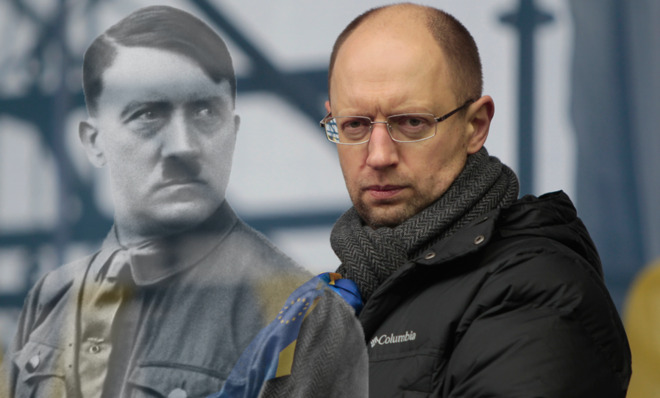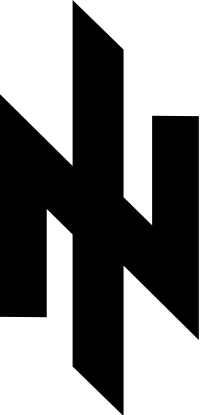No, Ukraine is not being run by fascists
In fact, Vladimir Putin may be projecting a bit


A free daily email with the biggest news stories of the day – and the best features from TheWeek.com
You are now subscribed
Your newsletter sign-up was successful
Russia and its deposed Ukrainian ally, former President Viktor Yanukovych, have a special word for the protesters and opposition members of parliament that ousted him: fascists.
The epithet "fascist" holds special meaning in Russia, whose Soviet army lost some 8.7 million soldiers and many millions more civilians in the war against Nazi Germany. But evoking the specter of Adolf Hitler is not particularly helpful in determining what Putin means exactly and whether there's any truth to his claim.
So, for starters, what is fascism?
The Week
Escape your echo chamber. Get the facts behind the news, plus analysis from multiple perspectives.

Sign up for The Week's Free Newsletters
From our morning news briefing to a weekly Good News Newsletter, get the best of The Week delivered directly to your inbox.
From our morning news briefing to a weekly Good News Newsletter, get the best of The Week delivered directly to your inbox.
There have been entire books written on the subject, but some common characteristics of fascist governments include extreme, quasi-religious nationalism; a highly autocratic leader; control of the media and fierce suppression of dissent; a focus on race; an expansionist or nostalgically imperialist foreign policy; cronyism; and an emphasis on military strength and might. Fascists, formally speaking, oppose socialism/communism (too egalitarian, not nationalist enough) and capitalism (too inefficient and hard to control).
Do the interim leaders of Ukraine fit that bill? Most members of the coalition government — such as acting President Oleksandr Turchyno, Prime Minister Arseniy Yatsenyuk, Justice Minister Pavlo Petrenko, and Interior Minister Arsen Avakov — are from the Batkivshchyna (Fatherland) Party, headed by former Prime Minister Yulia Tymoshenko. The Batkivshchyna Party has a populist, pro-Europe bent, mixing support for freer markets with a call for greater assistance for the poor.
Tymoshenko is an early frontrunner in the May 25 presidential race, along with millionaire businessman/politician Petro Poroshenko and former heavyweight boxing champion Vitali Klitschko. Klitschko, considered a political outsider, is a member of the Verkhovna Rada (parliament) but not part of the coalition government. He heads up the center-right Ukrainian Democratic Alliance for Reform (UDAR — or "Punch" in Ukrainian), which holds 40 seats in parliament. UDAR is also pro-Europe, virulently anti-corruption, and favors more expansive welfare policies.
None of these people can be called fascists. If you use a looser definition of fascist — say, a group with extreme right-wing, authoritarian, or intolerant views or practice — then there are actually elements of fascism in the interim government. Yatsenyuk's cabinet includes members of the ultra-nationalist Svoboda (Freedom) Party and the even-further-right Pravy Sektor (Right Sector), some of them in relatively high positions.
A free daily email with the biggest news stories of the day – and the best features from TheWeek.com

By distancing itself from anti-semitism, moderating its more radical platforms, and focusing on corruption, Svoboda won 10 percent of the vote for parliament in the 2012 election. Svoboda formed an opposition coalition with Batkivshchyna and UDAR, and that coalition held when the Maidan protests started in November 2013. By January, Tyahnybok was one of the protest's three leaders, along with Batkivshchyna's Yatsenyuk and Klitschko.
The ouster of Yanukovych provided an unexpected path to power for Svoboda, whose members now head the defense, agriculture, and environment ministries; party ideological chief Oleksandr Sych is deputy prime minister. Dmytro Yarosh, the head of Pravy Sektor, is deputy secretary for national security.
The political ascendance of far-right nationalists is largely attributable to their key, often belated role in the anti-Yanukovych protest. If Tyahnybok was one of the Maidan protest's leaders, Pravy Sektor earned respect for providing much of the muscle that kept the riot police at bay or even took the fight to the security forces.
In all, according to an AntiFascist Union Ukraine member, about 30 percent of the Maidan protesters were Pravy Sektor members, neo-Nazis, and other hard-core nationalists. But that's not too surprising: If you drew a Venn diagram of Ukrainian far-right nationalists and people who oppose Russia and Yanukovych, there would be almost total overlap.
But you can't say that these right-wing nationalists — even if they are fascists — are in charge in Ukraine. None of them have near the support to win the presidency, and Svoboda is ultimately unlikely to wield much more influence in Ukraine than the National Front in France or the British National Party in the U.K.
There are racist, anti-Semitic, violent, thuggish, neo-Nazi, white supremacist, and other unsavory elements in Svoboda and Pravy Sektor. But the accusations of fascism are a little rich coming from Putin and Yanukovych.
"The protests in the Maidan, we are told again and again by Russian propaganda and by the Kremlin's friends in Ukraine, mean the return of National Socialism to Europe," said Timothy Snyder in The New York Review of Books, right before Yanukovych's fall from power. But some of Putin's top advisers promote a form of "National Bolshevism" that looks an awful lot like fascism, Snyder added. And it was Yanukovych's regime "rather than its opponents that resorts to anti-Semitism, instructing its riot police that the opposition is led by Jews."
In other words, the Ukrainian government is telling itself that its opponents are Jews and us that its opponents are Nazis... Why exactly do people with such views think they can call other people fascists? And why does anyone on the Western left take them seriously?... What does it mean when the wolf cries wolf? Most obviously, propagandists in Moscow and Kiev take us for fools — which by many indications is quite justified. [NY Review of Books]
Unless Russia occupies more of Ukraine, that country will hold relatively free and fair elections on May 25, almost certainly leading to a divided government with multiple centers of power and opposition, covered by various media outlets representing different points of view. In Russia, Putin has been either president or prime minister for 15 years, carefully cultivates a strongman image, and seems to want to re-create the Russian empire of yore. He may not be a fascist per se, but there seems to be an element of projection here.
So when Russia says Ukraine is being run by dangerous fascists, they aren't being literal about it. "Fascists," in this context, translates roughly to what President Obama's opponents mean when they call him a "socialist": I don't like you or agree with what I believe you stand for.
Peter has worked as a news and culture writer and editor at The Week since the site's launch in 2008. He covers politics, world affairs, religion and cultural currents. His journalism career began as a copy editor at a financial newswire and has included editorial positions at The New York Times Magazine, Facts on File, and Oregon State University.
-
 The environmental cost of GLP-1s
The environmental cost of GLP-1sThe explainer Producing the drugs is a dirty process
-
 Greenland’s capital becomes ground zero for the country’s diplomatic straits
Greenland’s capital becomes ground zero for the country’s diplomatic straitsIN THE SPOTLIGHT A flurry of new consular activity in Nuuk shows how important Greenland has become to Europeans’ anxiety about American imperialism
-
 ‘This is something that happens all too often’
‘This is something that happens all too often’Instant Opinion Opinion, comment and editorials of the day
